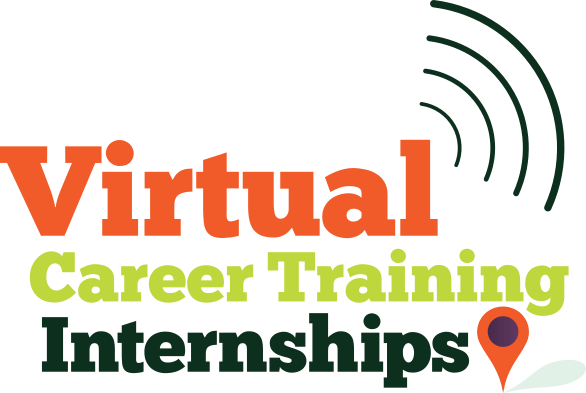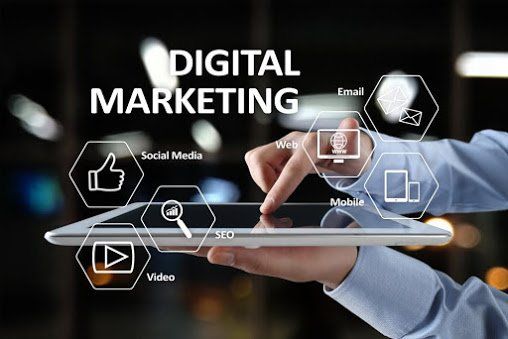Remote Internship in the Digital Marketing Sector
What is Digital Marketing?
Digital Marketing is considered to be any form of advertising that is delivered to the target audience through online and digital channels such as social media, websites, email, search engines and applications. Organisations use these digital channels to display and promote their products, services and offers online. Digital Marketing is one of the best ways to inform customers of new product/service offerings as it’s quick, efficient and cheap. Many consumers depend on these digital channels when researching certain products and services before fully committing to making a purchase e.g. reviews, recommendations, informative videos etc.
Digital Marketing has drastically grown in popularity in recent years meaning that digital channels have become saturated with advertisements and product placement which is beginning to result in banner blindness among consumers. Banner blindness is a term used to describe web users growing accustomed to ignoring or not seeing online advertisements due to the oversaturation of digital ads which are no longer eye-catching or engaging in their perspective. Companies have tried to combat this with new innovative advertising techniques such as highly targeted Google Ads with detailed keyword analyses, heavily promoting their business on social media platforms, using Instagram influencers who have a loyal, impressionable following and creating incentives for people to buy their products or services through competitions or discounts.
Should You Consider a Digital Marketing Internship?
You should consider a Remote Digital Marketing internship if you have an interest in or an educational background in Marketing, particularly Digital Marketing. For most organisations, educational experience such as a bachelor’s or master’s degree is a requirement however, some companies may consider candidates who are proficient in computer office packages and have knowledge of social media. Additional certifications such as Google Analytics and Google AdWords will also ensure you are a competitive candidate when applying for an internship role. Here is a list of some of the requirements and skills involved when considering a digital marketing internship:
- Bachelor’s or a master’s degree in Marketing or a related field (preferable)
- Computer literacy in software packages such as Microsoft Office and G Suite
- Certifications in Google Analytics and Google AdWords
- Clear understanding of social media platforms
Skills
- Organisational Skills – an intern will be given many responsibilities and tasks to achieve and must prioritise and schedule efficiently to meet strict deadlines
- Communication Skills – strong communication skills, both verbal and written, are important in this role as interns will work closely with the marketing team to develop and improve their skills
- Teamwork Skills – digital marketing roles will require collaboration with team members for the completion of projects
- Analytical Skills – interns will need analytical skills which will be further developed during an internship when evaluating the results of marketing campaigns
- Creativity – digital marketing interns will be tasked with content creation for the organisation's various social media platforms which will require innovative ideas to help increase brand awareness and engagement
Interns must have the beginnings of these skills as a digital marketing internship will help to improve and develop their abilities during their experience in the workforce.
What Tasks & Responsibilities Are Involved in a Digital Marketing Internship?
As marketing interns assist and work directly with the marketing team, there’s a variety of responsibilities and tasks they could be given, such as:
- Writing copy for social media posts
- Creating a social media calendar for the year
- Sharing blog posts on social media channels
- Making recommendations to improve engagement with target markets
- Writing various blog posts related to the company’s brand
- Writing blog posts about other topics that are relevant to your target market
- Propose different ideas for social media campaigns
- Identify like-minded brands for potential co-branding opportunities
- Create Google Ads and evaluate their progress through Google Analytics to identify web trends
- Conduct keyword analysis to see which keywords are performing well
- Conduct an in-depth competitor analysis
What to Display on Your CV & LinkedIn Profile
Another important aspect of attaining a digital marketing internship is updating your CV and LinkedIn profile with your most relevant education, work experience, skills, interests and hobbies. A CV is extremely important as it is what employers will see when considering candidates for a role. Your CV should include:
- Contact Information – name, email address, phone number, and a link to your LinkedIn profile
- Personal Profile – a brief description of you and what role/industry you’d like to work in
- Education– start from your most recent or current education and work backwards. State your educational background e.g. college, degree, results, skills learned, etc.
- Work Experience – state your work experience, again, start from your most recent or current role and work backwards. Describe your role and the tasks involved which are relevant to the role in which you’re applying
- Skills – state the most important skills relevant to the role and where you gained them e.g. organisational skills, communication skills, analytical skills etc.
- Interests – state your interests, hobbies or anything that’s unique to you to help you stand out e.g. you’re part of a sports team, you help out in your community, you have an interest in fitness etc.
NOTE: You should update your CV to suit the role or industry you are applying for. It’s important to include the skills and work experience that is most relevant to the role being pursued.
As well as a CV, your LinkedIn profile is almost just as important as it acts as a ‘virtual CV’ which any potential employer can come across. Here are some things you should include in your profile to show you have a professional presence on the platform:
- Profile Picture– ensure it's a professional-looking headshot picture. You should also utilise the ‘Open to Work’ feature which will indicate to potential employers that you are looking for work and which roles/industries you’re interested in
- About Section– give a brief overview of you, your experience, skills and what specific roles you’re looking for
- Experience – similarly to a CV, state your previous work experience including dates and your responsibilities
- Education – include any current or previous education e.g. degrees, courses, certificates
- Skills – use the skills section to add any skills you’ve acquired through relevant work experience or educational training
- Contact – be sure to add your email address in the contact section for potential employers to contact you.











